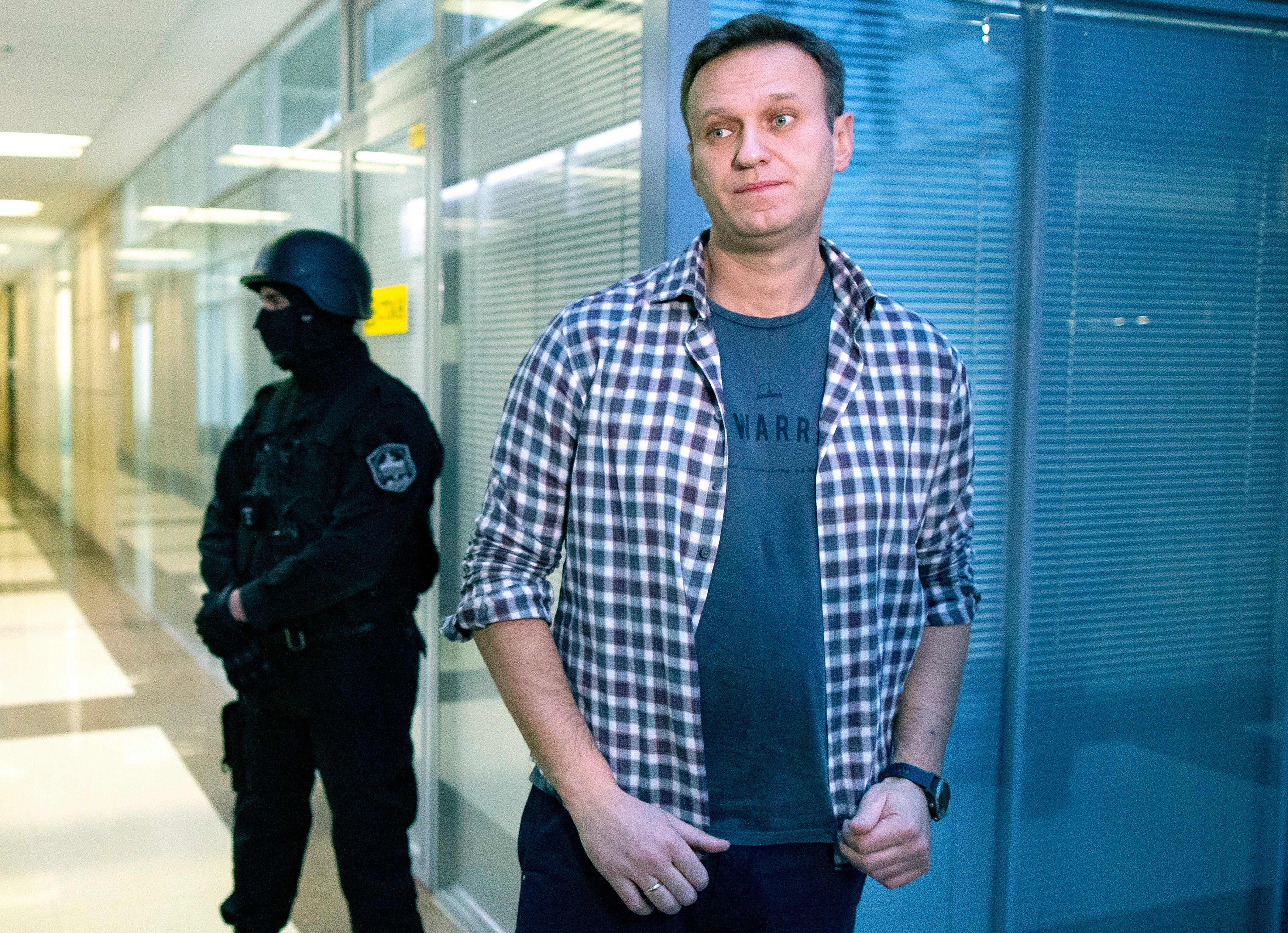Russia summons UK ambassador and blacklists high-level Brits in retaliation for Navalny sanctions
Six Britons were placed on the sanctions blacklist for ‘escalating anti-Russian sanction activity’

Your support helps us to tell the story
From reproductive rights to climate change to Big Tech, The Independent is on the ground when the story is developing. Whether it's investigating the financials of Elon Musk's pro-Trump PAC or producing our latest documentary, 'The A Word', which shines a light on the American women fighting for reproductive rights, we know how important it is to parse out the facts from the messaging.
At such a critical moment in US history, we need reporters on the ground. Your donation allows us to keep sending journalists to speak to both sides of the story.
The Independent is trusted by Americans across the entire political spectrum. And unlike many other quality news outlets, we choose not to lock Americans out of our reporting and analysis with paywalls. We believe quality journalism should be available to everyone, paid for by those who can afford it.
Your support makes all the difference.Two months after the UK imposed sanctions on Russians it says were “responsible” for the attempted assassination of Kremlin critic Alexei Navalny, Moscow announced it would impose its own travel blacklist against those it accused of “escalating anti-Russian sanction activity.”
British ambassador Deborah Bronnert was summoned to the imposing Gotham towers of Moscow’s foreign ministry at Smolenskaya square on Wednesday morning — and handed a note with the list of newly sanctioned names.
“She was told that the Russian side, in reciprocal manner, had decided to expand the number of British citizens barred from entering our country,” a statement on the foreign ministry’s site said.
According to local media, which quoted an unnamed ministry source, six British individuals made the list. They included “two undersecretaries, the head of the British secret services, and the leadership of the Portland Down British military laboratories.” The source refrained from naming the individuals.
Moscow warned it would respond “in-kind” to sanctions introduced by the United Kingdom and the EU on October 15.
Those sanctions, drawn up following the nerve agent poisoning of Alexei Navalny, focused on the highest levels of the Russian elite, including Sergei Kiriyenko, Vladimir Putin’s domestic policy chief and Alexander Bortnikov, the head of Russia’s security agency, the FSB.
A total of six men were accused of facilitating or being responsible for the “reckless and malicious” operation.
On December 22, Russia’s foreign ministry summoned diplomatic representatives of EU embassies to inform them it would be widening the blacklist of EU individuals. Again, Moscow accused the foreign nationals of “escalating anti-Russian sanctions activity".
The Kremlin has positioned itself aggressively following a series of explosive investigations that seem to implicate the Russian state in an operation to do away with their most irksome domestic critic.
Those investigations ascertained how a group of FSB agents with chemical weapons and medical backgrounds followed the opposition politician for the best part of four years, including at critical points in the poisoning timeline.
Later, Mr Navalny appeared to secure a full confession in a phone call with one of his would-be assassins. That call revealed several excruciating details about the botched operation — including how the Novichok nerve agent was applied to the politician’s underpants.
On Tuesday, the Kremlin appeared to add Mr Navalny to a separate, informal travel blacklist.
Opening a new criminal investigation into alleged fraud at Mr Navalny’s anti-corruption foundation, the state investigation committee gave the politician a simple choice: stay put in Germany, where he has remained since being airlifted out of Siberia for lifesaving treatment, or be arrested on arrival in Russia.
Writing on social media, Mr Navalny claimed the move demonstrated that Russia’s president had become “hysterical” following the full disclosure of his botched operation.
In a press conference with journalists on Wednesday, Kremlin spokesman Dmitry Peskov insisted this was not so.
“This situation doesn’t cause Vladimir Putin to have any feelings at all,” he said.




Join our commenting forum
Join thought-provoking conversations, follow other Independent readers and see their replies
Comments